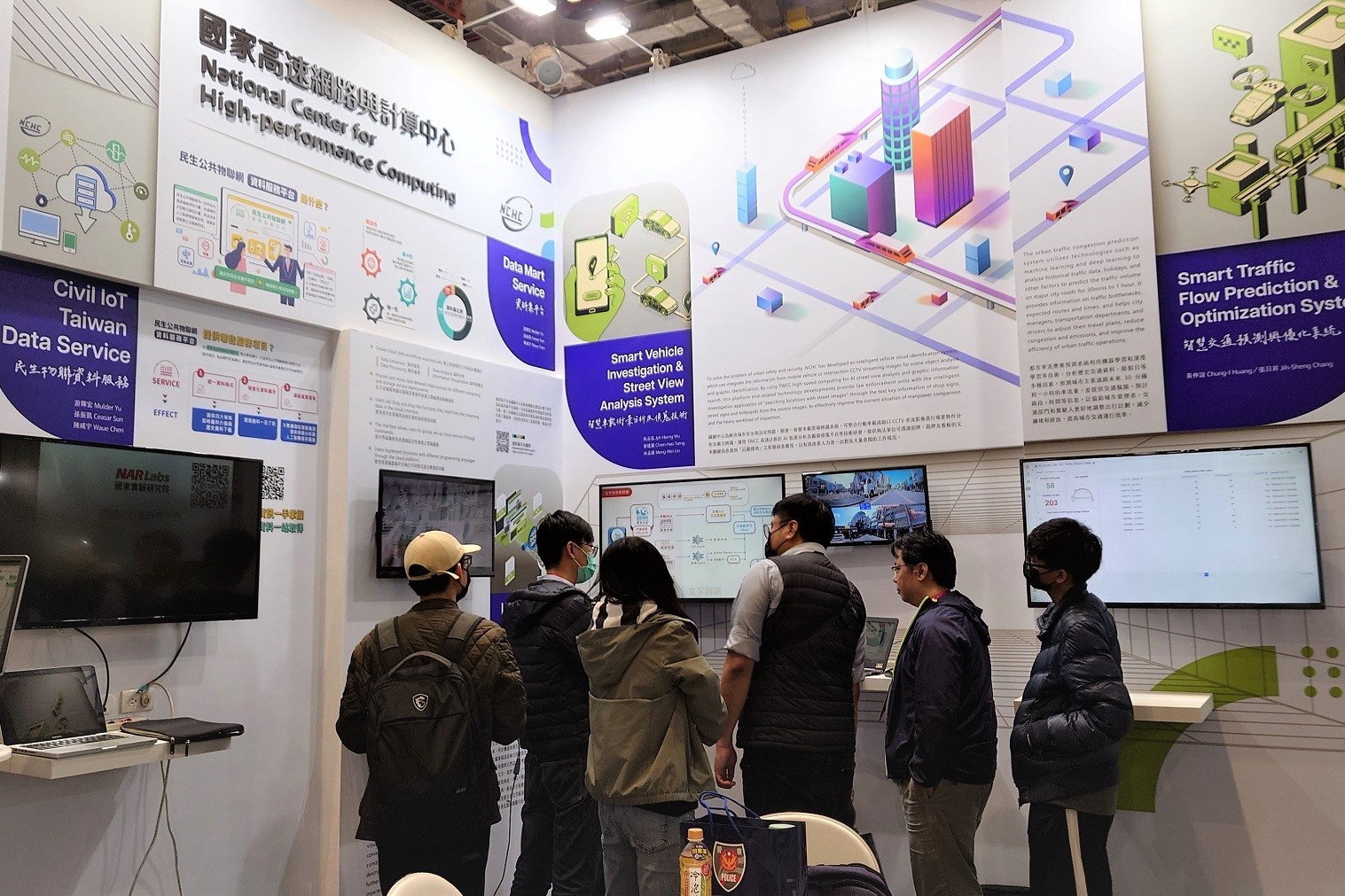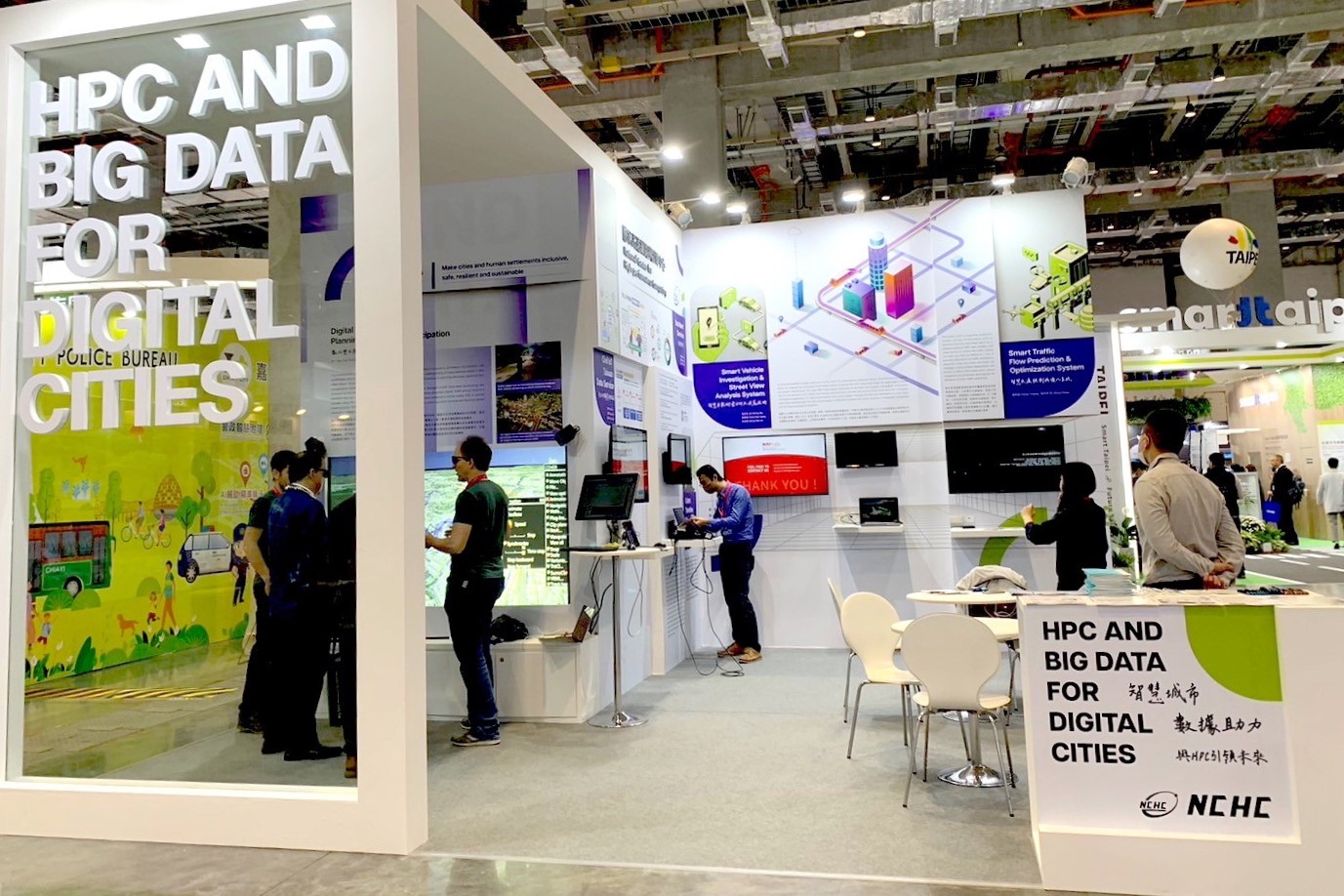National Center for High-performance Computing Participated in Smart City Expo 2023
Publicsh Date:2023.03.31
The domestic exhibits came from more than 550 entities in 11 counties or cities that covered these themes: Internet of things applications, smart innovations, smart governance, smart medical care, smart buildings, smart transportation, and smart security. Though the exhibit of the National Center for High-performance Computing was placed in Smart Governance, its exhibits actually encompassed many themes. This year the NCHC joined hands with the Stuttgart Supercomputer Center in Germany. During the exhibition, we had discussions with county and city governments, National Police Agency, and police departments of various counties and cities. It is expected that NCHC's achievements can be duplicated and applied in many more cities.
The display of NCHC achievements:
- Civil Iot Taiwan Data Service/ Data Mart Service: Civil IoT Taiwan is a large-scale digital construction project constructed with the combined resources and strength of various government ministries with hopes of building various smart life service systems through AI Internet of Things technology.
- Smart Vehicle Investigation & Street View Analysis System: The NCHC, in an effort to solve urban safety and public security problems, has developed a smart vehicle cloud identification system to integrate mobile vehicles or CCTV streaming images at intersections for scene object analysis and graphic and text identification. This delivers effective improvements over the current manual, individual comparisons and a large number of checking.
- Smart Traffic Flow Prediction & Optimization System: Using machine learning and deep learning technologies the system provides messages about traffic bottlenecks at anticipated road sections and time to help city managers, transportation departments, and drivers to better adjust their travel plans.
- Digital twins for planning and public participation: Scientists at the High Speed Computing Center at the University of Stuttgart (HLRS) have continued to develop new solutions using computer simulations to make simple challenging processes for urban planning. HLRS has applied the concept of digital twins to urban planning in several of its recent projects in the hope of making the planning process more intuitive and facilitating improved community involvement.
- I Listen therefore I See: Image information is not useful for the visually impaired. We have combined visual features and visual converters in an image description model, the text description generated by which is further combined with voice reading to help the visually impaired obtain information to learn.

National Police Agency officials and local police departments learn about the collaboration between the NCHC and Taichung City Police Department.

The Stuttgart Supercomputer Center was invited to showcase, at the NCHC booth, the achievements of its digital twin smart community in a German town.
 國家高速網路與計算中心
國家高速網路與計算中心
